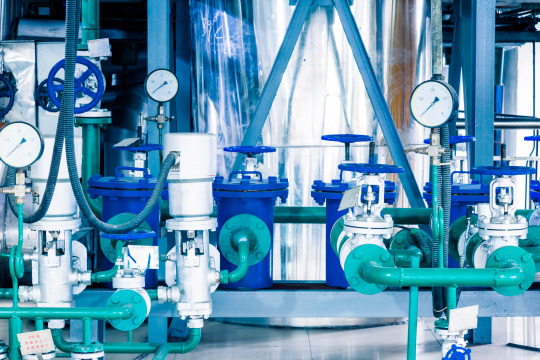Text

Industrial Water Pumps: Meeting the Demands of Heavy-Duty Applications
In industrial settings, where large-scale operations and demanding processes are the norm, reliable water supply is vital for smooth production and efficient workflow. Industrial water pumps play a critical role in meeting the demands of heavy-duty applications, ensuring a consistent and efficient water flow. In this blog, we will explore the significance of industrial water pumps, their diverse applications, and how they contribute to the success of various industries.
Powering Industrial Processes: Industrial water pumps are designed to handle the rigorous demands of diverse applications across industries. These pumps provide the necessary water flow, pressure, and reliability to power critical processes such as cooling, heating, circulation, filtration, and transportation of water or other fluids within industrial facilities.
Wide Range of Applications: Industrial water pumps find applications in various sectors, including manufacturing, power generation, oil and gas, mining, chemical processing, wastewater treatment, construction, and more. They are used for tasks such as supplying water to boilers, cooling towers, machinery, or firefighting systems, as well as transferring or draining fluids in complex industrial processes.
High Performance and Durability: Industrial water pumps are engineered to withstand demanding conditions, including high pressures, temperature variations, abrasive or corrosive fluids, and heavy usage. They are constructed using robust materials, such as cast iron, stainless steel, or specialized alloys, ensuring durability and longevity even in harsh environments.
Different Pump Types for Specific Applications: Industrial water pumps come in a variety of types, each designed to suit specific requirements. Some common pump types used in industrial settings include centrifugal pumps, reciprocating pumps, diaphragm pumps, submersible pumps, and positive displacement pumps. Each type offers unique characteristics, such as high flow rates, high pressures, self-priming capabilities, or the ability to handle solids or viscous fluids.
Efficiency and Cost Savings: Efficiency is a crucial aspect of industrial operations, and water pumps play a role in optimizing energy usage and reducing costs. Industrial pumps are available in energy-efficient models, incorporating advanced technologies like variable frequency drives (VFDs) or intelligent controls that enable precise regulation of pump speed and flow. This results in reduced energy consumption, lower operational costs, and enhanced overall efficiency.
Reliability and Maintenance: In industrial settings, downtime can be costly and disruptive. Industrial water pumps are engineered for reliability and require regular maintenance to ensure optimal performance. Proper maintenance practices, such as routine inspections, cleaning, lubrication, and timely replacement of components, are essential to prevent breakdowns and extend the life of the pumps.
Hence, Industrial water pumps are indispensable components in heavy-duty applications across a wide range of industries. They provide the necessary water flow, pressure, and reliability to power critical processes and ensure smooth operations. By offering high performance, durability, efficiency, and the ability to handle demanding conditions, industrial water pumps contribute to the success and productivity of industrial facilities.
Whether it's supplying water for cooling, heating, circulation, or transferring fluids in industrial processes, investing in reliable and efficient water pumps is crucial for meeting the demands of heavy-duty applications. By selecting the right pump type, implementing proper maintenance practices, and embracing energy-efficient technologies, industries can enhance operational efficiency, reduce costs, and achieve sustainable growth.
#water pump#WaterSupply#PumpSelection#WaterPressure#SustainableLiving#EnergyEfficiency#WaterManagement#PumpMaintenance#WaterSolutions#WaterConservation#ReliableWaterSupply
1 note
·
View note